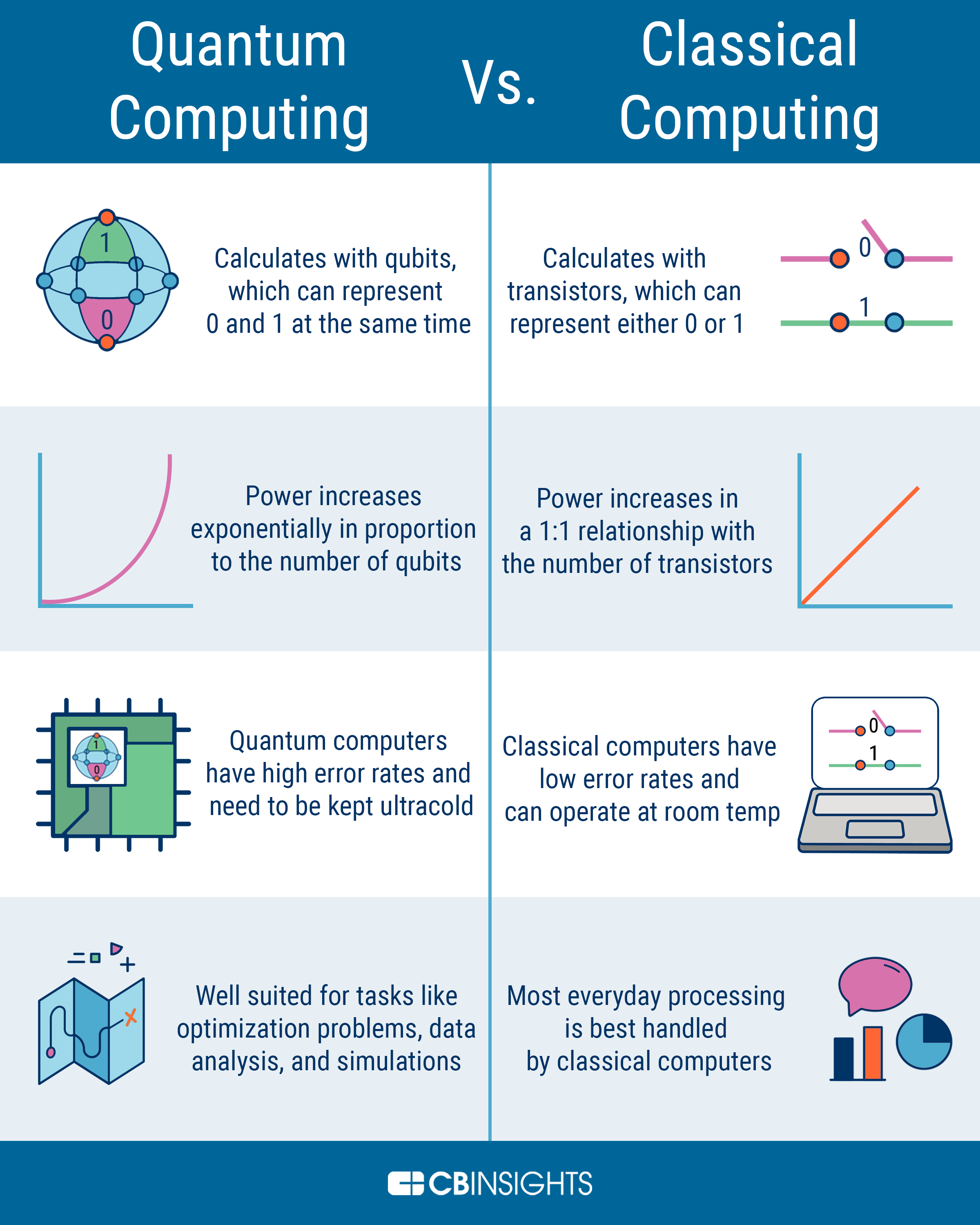Rise by Six: Your Daily Dose of Inspiration
Explore insights and stories that elevate your day.
Quantum Computing: The Next Digital Renaissance
Unlock the future! Discover how quantum computing is shaping the next digital renaissance and revolutionizing technology as we know it.
Quantum Computing Explained: How It Works and Why It Matters
Quantum computing is an advanced field of computing that leverages the principles of quantum mechanics to process information in fundamentally different ways than traditional computers. At the core of quantum computing are quantum bits, or qubits, which can exist in multiple states simultaneously thanks to superposition. This allows quantum computers to perform complex calculations at unprecedented speeds. Unlike classical bits that are restricted to being either 0 or 1, qubits can be both at the same time, enabling a level of processing power capable of tackling problems deemed intractable by classical systems.
The significance of quantum computing extends beyond mere speed; its implications could transform industries ranging from cryptography to drug discovery. Why it matters is evident in its potential to solve complex optimization problems, simulate molecular structures, and enhance artificial intelligence algorithms. For instance, when considering tasks such as factoring large numbers or modeling quantum systems, quantum computers can achieve results exponentially faster than any classical counterpart. As research progresses and quantum technologies become more accessible, we may witness a paradigm shift in how we approach computing challenges and innovate solutions.

The Future of Quantum Computing: Innovations That Could Change the World
The future of quantum computing promises groundbreaking innovations that could revolutionize various sectors, including healthcare, finance, and artificial intelligence. As researchers continue to unravel the complexities of quantum mechanics, we are witnessing the emergence of powerful quantum algorithms that can solve problems beyond the reach of classical computers. For instance, quantum encryption offers unparalleled security for data transmission, rendering conventional hacking techniques virtually ineffective. This enhancement in security could lead to a new era of trust in digital communication, fundamentally changing how we interact and conduct business online.
Moreover, advancements in quantum hardware are paving the way for more accessible and efficient quantum computing systems. Technologies like superconducting qubits and trapped ions are leading the race towards more stable and scalable quantum processors. As these innovations come to fruition, we can expect significant reductions in computational time for complex simulations and optimizations, such as those required for drug discovery and climate modeling. The ripple effects of these advancements could be profound, making quantum computing not just a technological marvel but a pivotal force for good in addressing some of the world's most pressing challenges.
Can Quantum Computing Solve Problems Beyond Classical Limits?
Quantum computing represents a revolutionary approach to processing information, leveraging the principles of quantum mechanics to tackle complex problems in ways that classical computers cannot. Quantum bits, or qubits, are the cornerstone of this technology, enabling exponentially greater processing power through phenomena such as superposition and entanglement. This allows quantum computers to explore multiple solutions simultaneously, making them potentially capable of solving problems that lie beyond the reach of traditional computing methods. As we delve deeper into the realm of quantum algorithms, the implications for fields such as cryptography, material science, and optimization are profound.
Despite the immense promise of quantum computing, it is essential to recognize its current limitations and the ongoing research required to realize its full potential. While certain problems, like factoring large integers or simulating quantum systems, may witness significant breakthroughs, not all computational challenges will yield faster solutions with quantum technologies. Moreover, practical implementation faces hurdles, including error rates and qubit coherence times. Nevertheless, the question remains: can quantum computing truly solve problems beyond classical limits? As researchers continue to innovate, we may find that the answer is a resounding yes, marking a new era in computational capabilities.